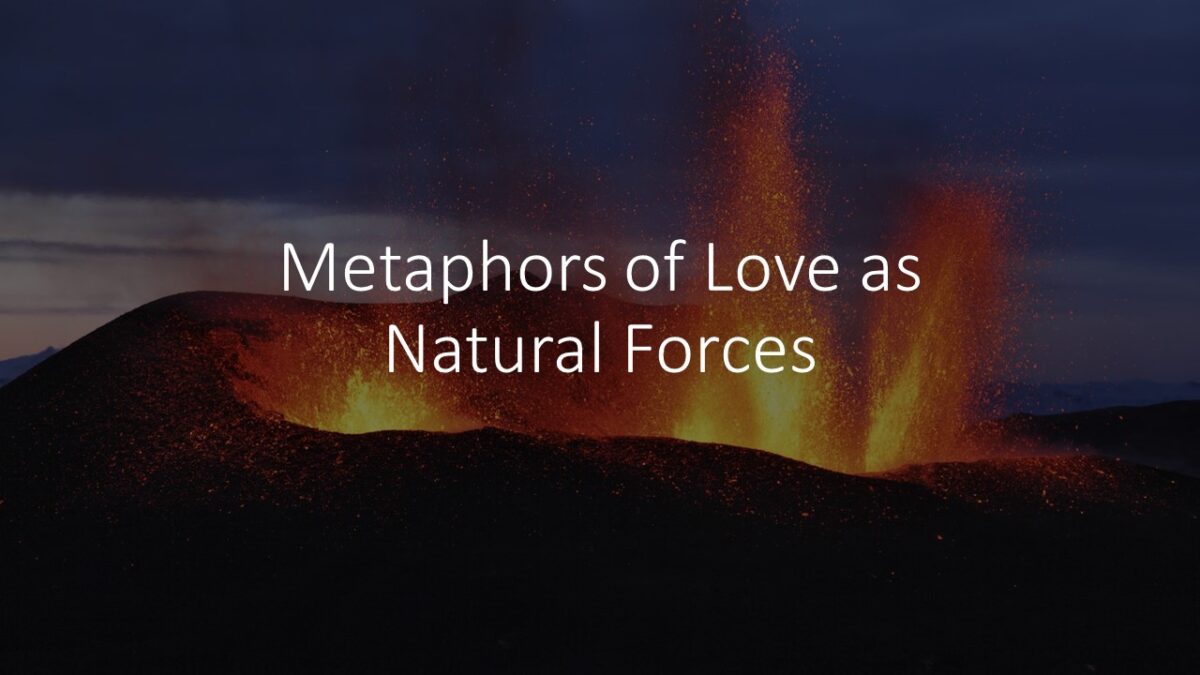Metaphors, metonyms, and related concepts make our understanding and experience of love richer and deeper. Various metaphorical expressions of love are quite typical across many languages and cultures (Kövecses, 1988, 2003).
For instance, the “love” metaphoric lexicon expresses the emotional experience of love in several metaphors that represent natural forces. These metaphors can emphasize the intensity of passion and lack of control in love.
Metaphors of Love as a Natural Force
The metaphor of “love as a natural force” presents many examples of this kind. Here are some examples: “for us, it was a whirlwind romantic relationship,” “I was carried away by love,” “she swept me off my feet,” and “I let myself go.” (Kövecses, 1988; Kovecses, 2003).
Similarly, the “love as physical force” metaphor represents love as a physical force like gravity, magnetism, or electricity. Once again, these metaphors emphasize that love is something over which an individual has no choice, no control, or no responsibility. For example, “they gravitated to each other immediately,” “I was knocked off my feet,” “his life revolved around her,” “they lost their momentum,” and “he was magnetically drawn to her.” The metaphors also highlight the love forces as magical, superior, and beyond an individual’s control: “He was enchanted,” “Waves of passion came over him,” and “She was completely ruled by love.”
The Natural Force of Romantic Attraction
Sexual desires and attractions are also often represented in the metaphors of electrical, explosive, or magnetic physical forces (Karandashev, 2019), e.g., “we were drawn to each other,” “we had chemistry between us,” “he had a lot of animal magnetism,” or “our relationship was devastating.”

Love and lust can be internal natural forces. For example, the “love as nutrition” and “lust as hunger metaphors represent love and sexual desire like hunger for food or appetite. The beloved or sexually appealing person and love/sex itself are compared with necessary sustenance, nutrients, and food, e.g., “she was starved for affection,” “he hungered for love,” “he was sex-starved,” “she looked luscious,” “Hi, sugar!“
Among the typical “love as physical force” metaphors are “love as fire (see another post) and “love as water.” Love is frequently described as a flood, storm, river, or wind. All these allegories usually characterize the high or low intensity of love and the ability or inability of a person to control their love experience—”He was burning with love.”
This metaphoric imagination can stem from the boosting effects of dopamine, serotonin, oxytocin, and endorphins. Physiological experiences of tightness in the chest, short and shallow breaths, sweating, an increasing heart rate, and feelings of euphoria or anxiety can precipitate various natural sensations and images.
Questions for thought:
Do you know any other metaphors for love as a natural force?
Do other languages and cultures have similar or different metaphors for love as a natural force?
You may also be interested in the articles:
